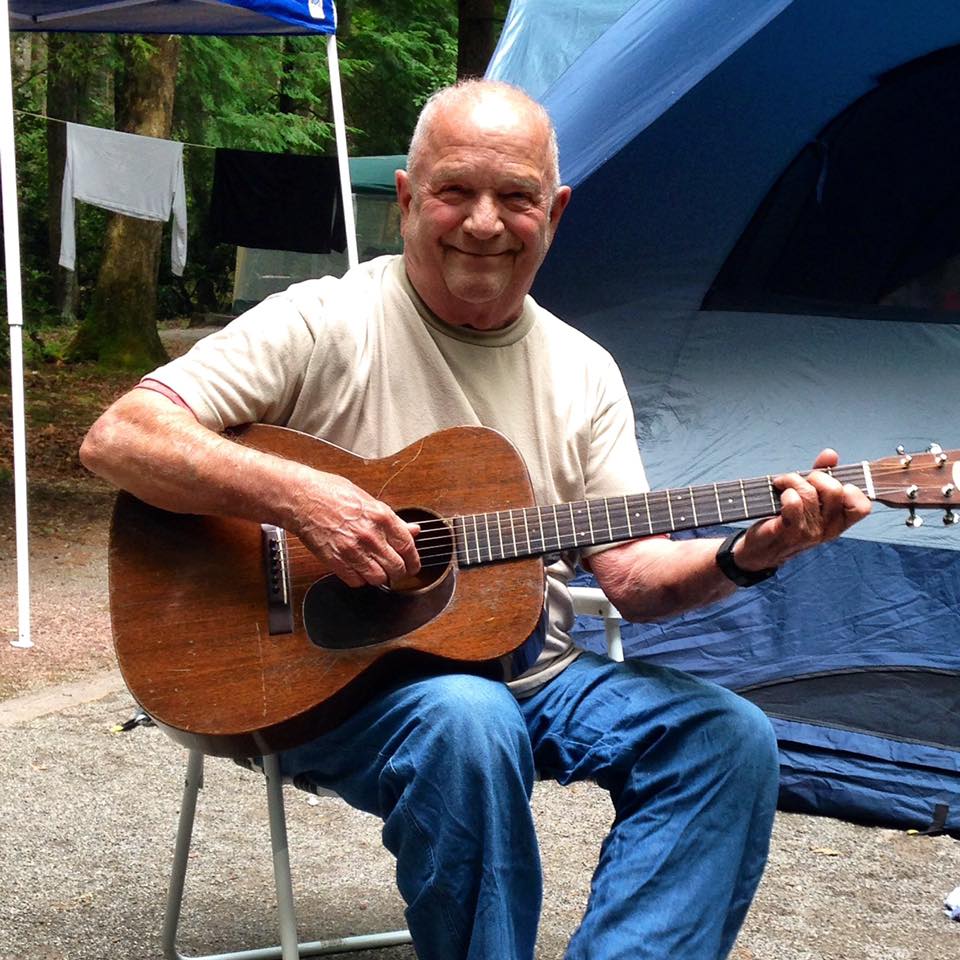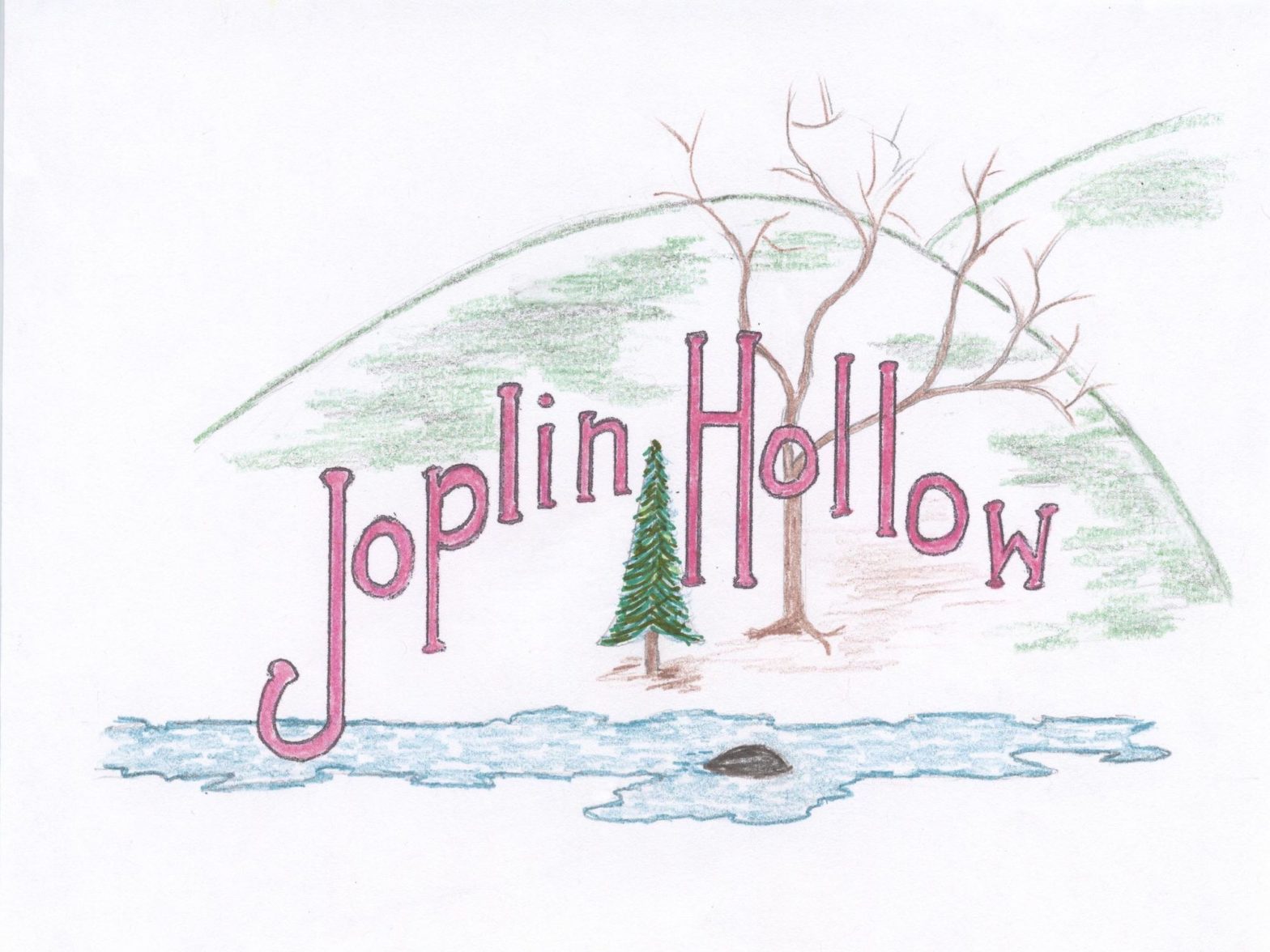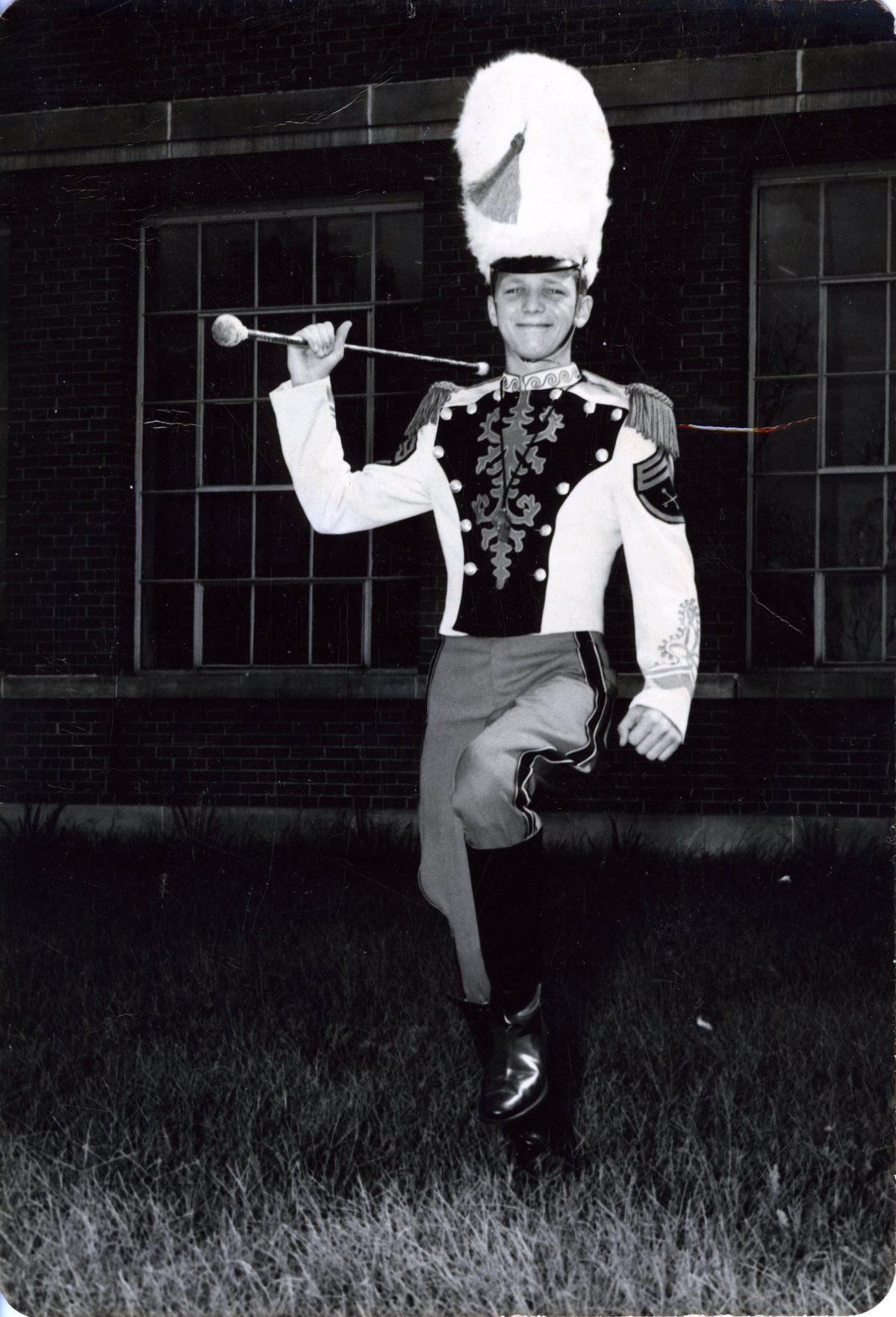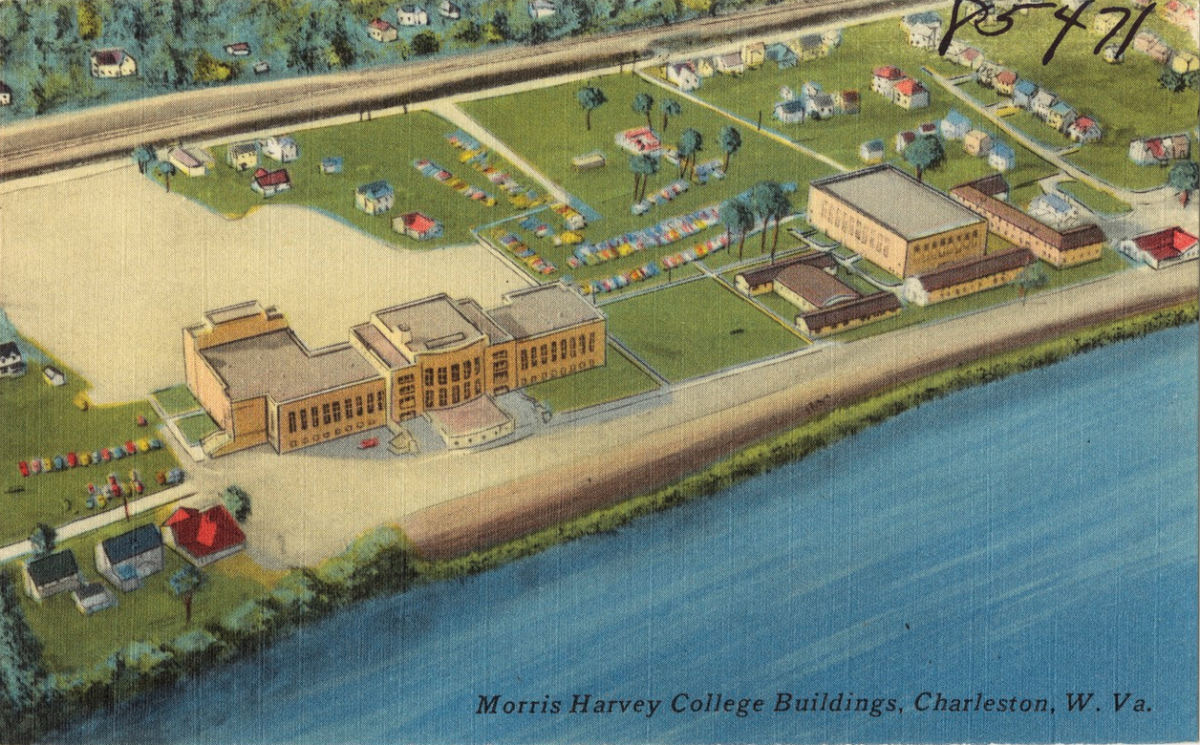When I was in high school most kids my age didn’t think too much about going to college. I read somewhere that the national statistics showed that 1953 was the first year that the dropout rate was less than fifty per cent. While it wasn’t nearly that bad at South Charleston High School, only a rather small percentage of students went on to college. I remember that almost every fall, when school started up again, I would notice that some of my classmates from the prior year didn’t show up. Most left school to take a job in one of the chemical plants, or some related employment. The idea was that college was for the elite, or always had been, and that for a factory town kid from a blue collar family to aspire to higher education was a concept that was new, an after effect of WW ll.
Somehow, it didn’t work that way for Alice and me. Dave had already been in and out of the navy, and was working at Carbide. There was very little discussion about college at our dinner table, but it was tacitly understood that we would be continuing our educations. There was no way the family could afford to send both — or either — of us to college, so I had looked for work-study programs, and applied to Antioch College in Ohio, as well as Berea College in Kentucky. Berea was a work-your-way-through school for rural kids, and I was rejected because I lived in a non-rural area. Antioch accepted me, but I just didn’t want to go there — they had no forestry program. I wanted to major in forestry — or so I thought, but West Virginia University — which had a fine forestry program — was not an option, money-wise. So I wrote a letter to the Secretary of the Interior — how I got that idea I don’t remember — stating my desire to study forestry, and to do so at the University of Alaska. I offered this plan: if the Department of the Interior would pay my way, I would upon graduation spend whatever time it took as an employee of the Forest Service in Alaska as repayment. Remember: this was in 1949, and Alaska was still a territory, so the University was operated under the auspices of the Interior Department.
I received an answer to the effect that the Secretary was very sorry that the Department had no program of assistance such as I had requested, so there was no deal. I’ll have to say that I was really disappointed; I had high hopes that my letter would get a good response. Instead, I was back a square one, and my only option was to go to Morris Harvey College, a private liberal arts school right there in Charleston. Dad agreed to pay one semester’s tuition, and that I could live at home at no cost. That’s where I found myself that September. With that preface, here’s how it went:
I showed up on campus — which was a really nice gymnasium and four WW2 surplus barracks buildings. Took the entrance exam, passed it. Learned later that that exam was the AGCT: Army General Classification Test, which meant if you were smart enough to get in the U.S. Army, you could go to Morris Harvey College. Actually, the state college entrance was easier: if you had a high school diploma you could enroll at any college within the state system, including WVU. Of course, there was no guarantee you’d be allowed to stay — you had to prove yourself capable of college work. For the next four years I lived at home. Arose every morning at six or so, caught a 7:00 bus to the train station, changed buses and rode to campus for an 8:00 class. Going home, same deal in reverse. Four buses a day for four years. No big deal; I never even thought about it. And since there was no “campus” in the manner of most colleges, I never thought things could have been better. Since that time I’ve been very, very glad that my kids had a true campus life experience. So I was now a student. Asked what I wanted to study, I said “business administration.” I had no idea that that was what I wanted or even what it was, but Dad suggested it, so I said it. The advisor said to sign up for the usual liberal arts courses, including freshman English and Western Civilization. Otherwise, go for your favorites. So, in addition to English and Civ, I signed up for — you guessed it — band, choir, music theory, music history. As a “business” major, I couldn’t have been happier with my schedule. All the classrooms were in the barracks buildings that first year. The second year was different — a new classroom building had been constructed, and we felt we had really arrived. I’ll not go through all the coursework I had over four years; not important. Only to say that after two years, as I was getting ready to enroll in the upper division business program, I was told no, actually, I was a music major. I shrugged and laughed; okay by me.
Morris Harvey had an enrollment of about one thousand students. We had no dorms; almost all the students were local and lived at home. So campus life in the conventional sense was almost nonexistent; rather, it was go to class, hang out with your classmates, go to ball games, etc. But no parties downtown, no frat houses, no meal tickets, none of that. But there were three fraternities and three sororities, so I pledged with Kappa Sigma Kappa. Big deal. We met every Thursday at noon in a classroom, and had a spring formal. (Obviously, no frat or sorority houses.)
I was a pretty good student. Dean’s list first semester, skated on that for a year or so, and picked it up again my final two years. The thing was, I became immersed in music. Good instructors, good performing groups, good friends — what more could one ask? My most admired professor, Henry Wolfe, really got me going with serious music. He was a fine pianist, an intellectual, and had a good sense of fun. And he was deadly serious about Bach, Brahms, Stravinsky, Hindemith, Bartok, and all the others. He really knew his stuff about composition, form and analysis, instrumentation, etc., so I signed up for all his courses.
Alice and I worked a deal: that first year, Alice went to the Charleston School of Commerce downtown and got a diploma, following which she took a job at the local Social Security office. So she was earning and saving for college, at the same time helping me when I would run short. Two years later, she enrolled at WVU , and after I started teaching, I was able to help her in return. That way, we both made it through school with a financial squeeze here and there. She also went to summer school at Morgantown, and graduated a year early.
I was able to scratch out my tuition, books, bus fare, and a little spending money by playing with local dance bands on weekends, plus Saturday jobs and summer work at the Carbide plant. But it was tight. I had bought a King Super 20 tenor sax (dad cosigned the note), and I paid for the sax — about $180.00 — as well as the other stuff. I know that $180 doesn’t sound like much, but one semester’s tuition was about $160.00! So that’s an idea of what money was like back then. Oh, and bus fare was 10 cents each way — 20 cents a day. To put all that in perspective, I earned about eight or nine dollars for a three-hour dance job. And the minimum wage my first summer at Carbide was about 75 cents per hour. I ran short of tuition money for my fourth semester, so I sold my tenor sax to a good friend for $180.00. That put me through a semester, and without the sax (oh, did I hate to sell that sax!) I used an old baritone sax that belonged to the music department for my weekend dance jobs. It was called making ends meet. I say emphatically that all that financial stuff was not a real bother to me; I always felt I had a good deal at home, and that a lot of people my age couldn’t do what I did.
A note about the sax: I had insisted that I be allowed to major on saxophone. Insisted? To the department? Huh. They said nothing doing, that a saxophone was not a legitimate wind instrument in the conventional, “classical” sense. And further, they found out (I had never mentioned it) that I had played oboe in high school. Therefore, it was declared that I was an oboe major. And that was that. I played my graduation recital (kind of like orals) on oboe. Actually, I liked that school-owned student model Linton oboe, and learned to make reeds, replace springs and corks, and all the stuff that goes with oboes. I got to be fairly conversant with the instrument, and even performed with the Charleston Symphony on rare occasions when they were in need of an extra oboist. But down deep, tenor sax was my real instrument.
During those years, the United States was embroiled in the Korean war, or conflict, or police action. I had joined the Army Reserve Band, stationed in Charleston, and was subject to call to active duty at any time. (By the way, I was paid for that: about $10.00 a month, paid quarterly.) My enlistment date, which was several months before the Korean conflict began, was helpful in that I did not have to face being drafted into the armed forces while in school. But I, and all my reserve buddies, married or otherwise, were ready for active duty if called. (I stayed in the Reserves for ten years, and was considered a diehard by the time I took my discharge.)
College was great. The highlight of the music year was our spring choir tour, when we’d go on the road for a week, performing in small towns around the state, usually presenting evening concerts at local churches and morning programs in local high schools. We would leave Charleston on Sunday morning on a chartered Greyhound bus and return on Saturday. Our choir was very good; about 30 members. We performed a lot of sacred music by Bach, Brahms, Randall Thompson, and others, as well as folk music and other selections. Our director, Harold Ewing, was chairman of the department; a very nice, starched-collar Presbyterian from Michigan who was fearful of laughter. We liked and respected him, but we also wished without success that he’d loosen up just once in a while.
My great friend and fellow music major was Albert Mingrone, a pianist-bassoonist from Logan, West Virginia. He was one year behind me in school. A really fine pianist, we clicked immediately. Among many other things he joined the Army Band, so that was another connection. We became a real pair, and we had a great time. His music forte was classical; my basic interest was jazz. In all respects we reflected ourselves upon each other and the bond was very strong. More later about this, but for now I’ll say that our friendship has been strong ever since. We try to get together at least once a year. Albert is one of the good guys.
On one of our tours we went to Greenbrier County. The tours worked like this: we would stay overnight with families from the church where we would perform. They would feed us supper before the concert and breakfast before we left the next morning. The family which hosted Albert and I lived on a farm close to Alderson. Alderson: ring a bell? That’s where Dad grew up, where I spent summers with my grandparents Fred and Lelia Farley, so it was a little like a ‘reunion‘ with that quaint town. Anyway, this family was nice. It was Sunday afternoon, and the man of the house was a big baseball fan. And very religious. He invited Albert and me to listen to the Cincinnati Reds (my team too!) on his little radio. He would listen intently, talk about the players, like a real fan. At the end of each inning he would turn the radio volume down. Then back up when play resumed. I finally asked him why he did that. His answer was simple: the radio broadcast was sponsored by Burger Beer of Cincinnati, and they would do a beer commercial between innings. “Baseball I love. But beer is sinful. There will never be any mention of beer in my house.” I wondered for a long time if he realized that he had compromised something, somewhere.
The next morning we performed at Lewisburg High School in downtown Lewisburg. Little did I know that I would one day be the Superintendent of Schools in Greenbrier County, with that campus one of many over which I had administrative responsibility. So our stop in Greenbrier County that year was memorable, mainly for two reasons: baseball but no beer, and my yet-to-be future with the school system.
In the spring of my sophomore year, my fraternity brothers encouraged me to run for president of the junior class. I thought that was pretty cool, and told them I’d think it over. Then . . . then, they suggested to me that if I were to begin dating the president of the most popular sorority on campus, that would enhance my election chances. Just think, they said. You can’t miss with her at your side.
Well, nice girl that she was, I had no real desire to date her, and besides, I wasn’t into that kind of political setup. I had just about decided not to run anyway. So I told my “brothers” no, I wouldn’t go for that deal at all, it kinda smelled. They weren’t happy at all and told me so. After a few days of mulling it over, I went to the next meeting and told them that (a), I wouldn’t do that deal, (b), I was resigning from Kappa Sigma Kappa, and (c), I had decided to run for class president as an independent. They were really displeased about that, and vowed that I would lose the election, by their own machinations if necessary. But being a very small college, I had gotten to know a lot of the students. And I had a little credibility: I was the band drum major, had been to all the games, had face recognition. So I played on that, started a rumpus about Greek control of the campus, etc. And I won. Of course, it was a big deal about nothing: following the election everyone, including the frat brothers and the sorority president, forgot about the ill feelings and we were once again a happy student body. By the way, the only duties of the junior class president were: first, to speak to incoming freshmen the first day of school the following year, and second, to be in charge of the junior-senior prom the following spring. Piece of cake. Went fine. Until, after the college gave me a budget for the prom with instructions to take care of everything, I did just that: I hired a local band to play the dance. Trouble was, the band was, umm, black. At a Methodist, southern, all white school in 1952. But it worked. I had known the band, played with most of them — they were buddies, and they played the gig at base cost. It didn’t occur to me there would be a problem, and . . . they were good. The prom was a huge smash. While I knew there were some expressions of consternation at the administrative level, I heard very little about what they surely judged to be my misguided action, and in some small measure, a barrier came down. (I hasten to say that during the time that all this was happening I was totally oblivious to the implications of what I was doing. It never entered my mind. I was just looking for a good band at a good price. But in those days, I was totally oblivious about a lot of things. Still am . . . a lot of stuff goes right by me.)
That’s a lot of talk to tell a very short story . . . but I enjoyed telling it.
My senior year, Albert’s older brother, with whom he lived, had moved to New York and he — Albert — had no place to stay. Like me, he was on his own financially, and was in a tight spot. At the time, Alice was in school at WVU, Dave had re-enlisted in the military — Army, this time, and we had twin beds in my room, so I asked Mom — first — and then Dad, if Albert could live with us that year. It was a deal, so we were roomies for a year.
We were inseparable, and did everything together: rode buses, walked downtown, flirted with girls, raided the refrigerator late at night, studied, you name it. We had no money, no car, no cares. We had a small phonograph and a few LPs on the table between our beds, and every morning Albert would put a record on at high volume: a Beethoven piano concerto, a Schumann symphony, a Richard Strauss tone poem: that was Albert. Try waking up to that five days a week. If anyone was more wrapped up in music than I, it was Albert. We had a fabulous year. He was able to move into one of the old athletic dorms the following year, and finished his degree a year behind me.
As an aside, I must mention that Albert and Kenny got to know each other during that time, and we were often the three caballeros, riding the streets of Charleston, trying to put together a really good singing trio (never happened), and just doing fun stuff together.
I graduated from Morris Harvey College in May 1953 with a Bachelor of Music degree. Four years spent as a mostly carefree-but-serious-enough student who had gained some knowledge and skills but didn’t really know much about long term goals. It was a great time for me, and it served me well during my teaching career. Even now, I try to visit the campus during my rare visits to Charleston.
Three years later I entered the (summer school) master’s program at Ohio State. Meanwhile, Albert had gone to New York to live with his folks for the summer and enrolled at the Teachers College, Columbia University. New York City. Unbelievable. What a place. I had learned at Ohio State that to earn a degree there would take about six summers, and Albert came back to Charleston (we were both teaching there at the time) with the news that his program at Columbia could be completed in three summers. That did it. The following summer I was at Columbia — with Albert. It seemed we always found ourselves in the same place at the same time. So for three summers Albert and I were back to our old stuff. But by then we were both much more serious students, and spent a lot of time studying together, poring over orchestral scores, practicing with our batons, reviewing notes from our classes. For recreation, we played frisbee at noon, and on weekends I’d go to his parents’ home in White Plains, where we’d go to movies and so forth.
Interjection: after my first summer at Columbia, Carol and I were married on November 15, 1957. As far as my job and school were concerned, nothing changed. Just my life. In the most positive way. There is much to say about that elsewhere, but for now, I’ll stick to the topic.
I won’t go into much more about Columbia, except to say it was an eye-opening experience for me. Learning from the recognized experts how to really conduct music — how to teach with the baton as well as with the eyes, and gestures, and body movement. Also, aside from the classroom: riding the subway downtown on Saturdays to watch the crowds. Interacting with other students from across the country, some from renowned institutions like Eastman and Juilliard. Going to outdoor concerts at Lewisohn Stadium. Living on fifteen dollars a week — in New York. But more than anything — learning. Soaking it up. Every single day. The professors there were fabulous. One professor had a 7:30 a.m. class. Thirty of us were enrolled. Over a hundred were there every morning, just to listen to this great educator. His name was James Murcell, and he is internationally renowned even today for his great work.
I finished my M.A. at Columbia in 1959, and it changed who I was as a teacher, as a conductor, and most importantly, as someone who could probe, explore a work of music in a more comprehending and insightful way.
Years later, I went on to complete an Ed.D. at Virginia Tech. It was a good program for me, and I wouldn’t slight it in the least. But it was coursework, research, and writing, mainly. I continued my full-time job and commuted to Blacksburg from my home in Roanoke County. Aside from going to class, my family and work life didn’t change, so I have no tales to tell about this experience. Perhaps the most important note in all this is that during those three years Carol, Patrick, Leslie and Amy supported me totally, never complained when I couldn’t be there for an event, took care of the matters of housekeeping and school, and always, always stood behind me, as they always had and always have.
My advising professor there was Wayne Worner, an extraordinarily fine teacher and mentor, who understood my goals and stepped in constantly to help me achieve them with minimal inconvenience to my “regular” life. He steered my program and worked with my committee through the whole process, allowing me to complete the program on schedule and without a hitch. And to this day he and his wife Kathie are fine friends whom I see on occasion. I owe him a great deal for helping me in my transition from teacher to researcher / writer / educational leader. Several years later, it was my good fortune to have his son Scott join our staff of building principals in Spotsylvania County, where he served with distinction in several important roles.
All considered, my “higher” education experiences were certainly of great importance in my life. “Grad school” was fine and pivotal for me professionally, certainly at Columbia, and in an equally meaningful way at Virginia Tech. All the above having been said, “College,” to me, was defined in every way by those four years at Morris Harvey. That was truly the time that gave direction to my life. Had I not gone to college, I would have done okay, I think. But the “I think” part of that would have never happened.












